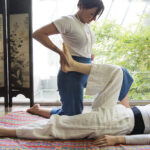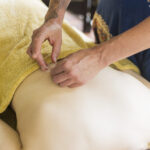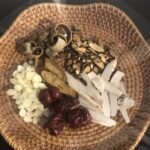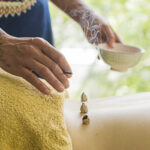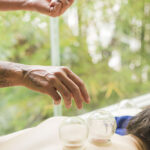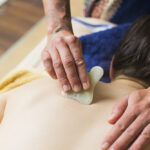Acupuncture
“Tong Ze Bu Tong; Bu Tong Ze Tong.”
“If there is free flow, there is no pain; if there is pain, there is a lack of free flow.”
Huang Di Nei Jing
Acupuncture is an ancient healing practice that strongly emphasises the interconnectedness of physical, mental and emotional well-being. It aims to harness the body’s innate ability to self-heal and bring about positive change. It does this through the delicate insertion of fine, sterile needles at specific acupoints along the body’s energy channels. These needles play a crucial role in regulating the flow of Qi (life force), enhancing blood circulation, reducing inflammation, and promoting pain relief and relaxation.
Acupuncture was developed in Asia over 2000 years ago and is now practiced worldwide. Most patients find Acupuncture to be a relaxing experience with a strong sense of groundedness and a heightened sense of well-being after treatment.
How does it work?
In Chinese Medicine, it is believed that disruptions or imbalances in the flow of Qi (life force) can result in pain or illness. To address these issues, acupuncture is employed as a means to unblock or restore the flow of Qi. Acupuncture guides the body’s healing awareness to the site, relaxing tight muscles, clearing inflammation and restoring the flow of energy.
From a Western medical perspective, acupuncture stimulates the nervous system and activates the body’s innate ability to release natural pain-relieving agents, such as endorphins and neurotransmitters.
There are acupoints all over the body that, when stimulated, can elicit specific healing responses in the body, reducing stress, increasing energy levels and bringing back balance to the whole body.
A Chinese Medicine practitioner chooses the acupoints based on a diagnosis that is decided during assessment based on questioning and observation of the tongue and pulse and palpation of the abdomen and energy channels of the limbs. A practitioner can integrate acupuncture with a range of complementary therapies. These may include cupping, gua sha, massage, herbal medicine, nutrition, exercise, and mindfulness practices.
Does it hurt?
Acupuncture is not painful. Sometimes, patients experience a dull ache, quick prick, or muscle twinge that subsides almost immediately. It does not feel like an injection and is never inserted into a vein. Louisa practices very gentle acupuncture and is guided by the feedback from her patients. For those experiencing anxiety or feeling uncomfortable, Louisa can apply other techniques such as acupressure, moxa and cupping as a needle-free alternative.
(Photo Source: Alex Stevens Photo)

